Brazil’s first game met with cheers, concerns
Football fans in Sao Paulo reflect on Brazil’s first match and controversies surrounding spending for the World Cup.

Sao Paulo, Brazil – A roar slowly began to build among the sea of green and yellow as thousands of Brazilians cheered when their national squad ran out onto the field: The 2014 World Cup had officially begun.
In a 3-1 victory over Croatia, millions of fans celebrated the country’s win throughout the night.
National excitement for the tournament had until then remained muted, with widespread discontent at the government’s handling of World Cup preparations bubbling over in the form of workers’ strikes and protests. The streets of Sao Paulo, Brazil’s most populous city, only truly came alive on Thursday morning.
Al Jazeera spoke to fans at the FIFA-organised “Fun Fest”, a public viewing of the opening match, at Vale do Anhangabau park in Sao Paulo’s city centre, about their impressions at the start of the World Cup and what they believe its impact will be.
| Mariete, 40 |
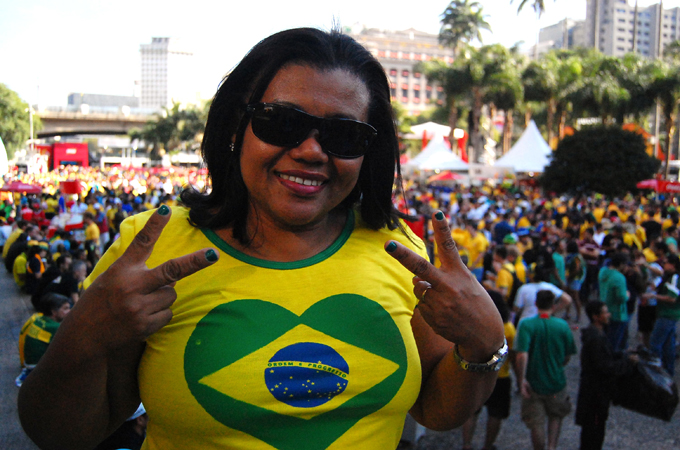 |
| [Jillian Kestler-D’Amours/Al Jazeera] |
I came to be around the people. I live with my husband and my son, and I came to be around the people and the party. It’s great. I want it to be more crowded. There are so many people, I can’t sit – I have to stand up.
As the games get closer and closer, the preparations will be better. Brazil is still preparing, but a lot has already been done.
I think all [the protests] will stop once the games start. Brazilians like to watch games and to win. When the World Cup starts, people are just going to let it go. Afterwards, there may be some protests, but it won’t be like last year. The World Cup comes first in peoples’ minds.
| Leonardo Pinheiro, 31 |
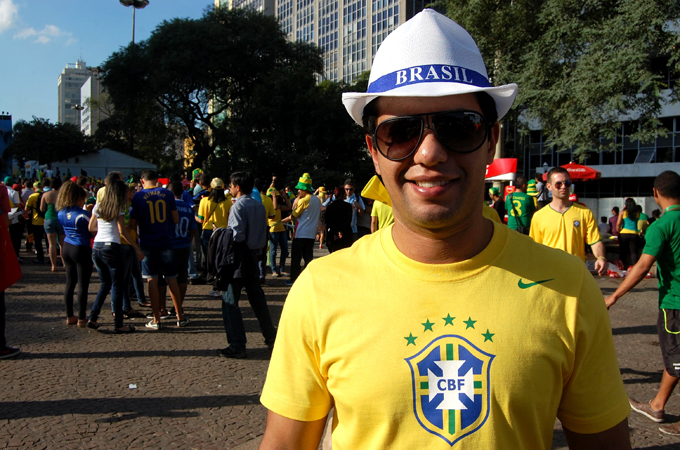 |
| [Jillian Kestler-D’Amours/Al Jazeera] |
I came for the party. When the game starts, I’m going to go to a bar.
It’s a milestone event for the country, but it wasn’t handled very well. The over-billing that happened and the infrastructure work caused a certain portion of the population to become very upset … The World Cup could have been more centralised.
If Brazil leaves the World Cup early, there might be more demonstrations.
| Nilton Rodrigues, 42 |
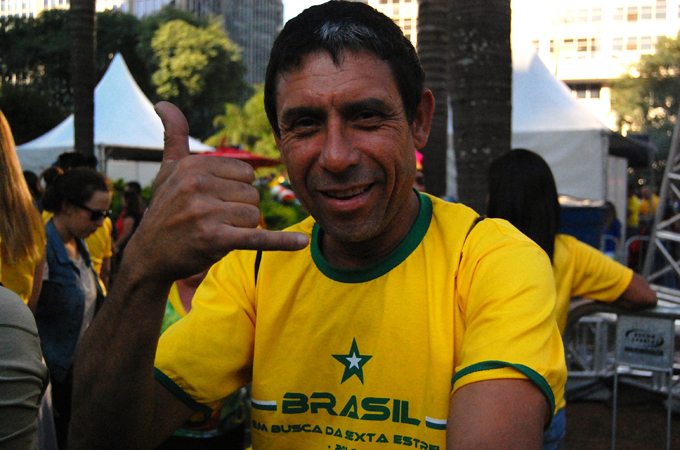 |
| [Jillian Kestler-D’Amours/Al Jazeera] |
I think it’s cool [that Brazil is hosting the World Cup], but Brazil is going through a difficult economic time. The government doesn’t give the Brazilian people support or help. I’m happy the World Cup is here, but a lot of people that aren’t from here can’t see the other side of the situation.
I was born in 1971 – one year after Brazil won the World Cup in 1970. Brazil is a country that has the best players in the world. Football is ingrained in Brazilian culture. Kids start playing at a young age. It’s a tradition.
I can’t afford to go the stadium. I’m a Brazilian, but I can’t afford it. There’s no way. I don’t even know how much it costs, but there’s no way. The World Cup is for everyone, but a lot of Brazilians can’t afford to go.
| Francisco Matelli, 26 |
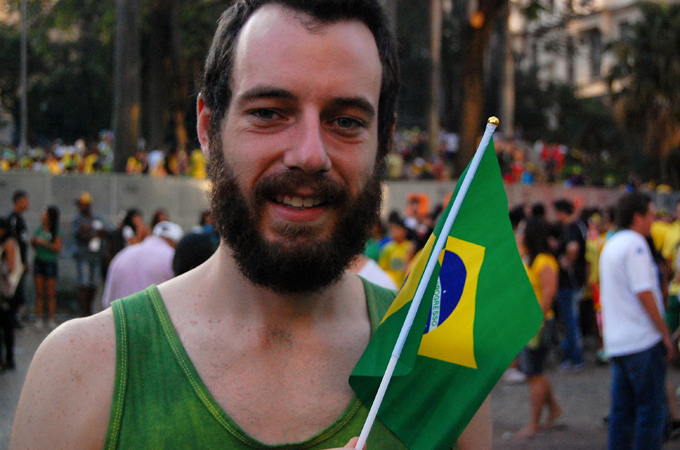 |
| [Jillian Kestler-D’Amours/Al Jazeera] |
I came because I don’t have a television [laughs]. The people are fun and the mood is good. I’m a fan of [Sao Paulo city team] Palmeiras, but today, I’m rooting for Brazil.
The trigger [for the anti-World Cup protests] was the hike in bus fares … but it grew to have many voices and requests. People had been waiting so long to speak … The central question is: Where is this situation headed? Which minority [voice] is going to win out?
On the last day of the World Cup, there will be an influence on politics. The World Cup is always in an election year and this is going to affect the [presidential] election [in October].
| Fernanda Lopes, 22 |
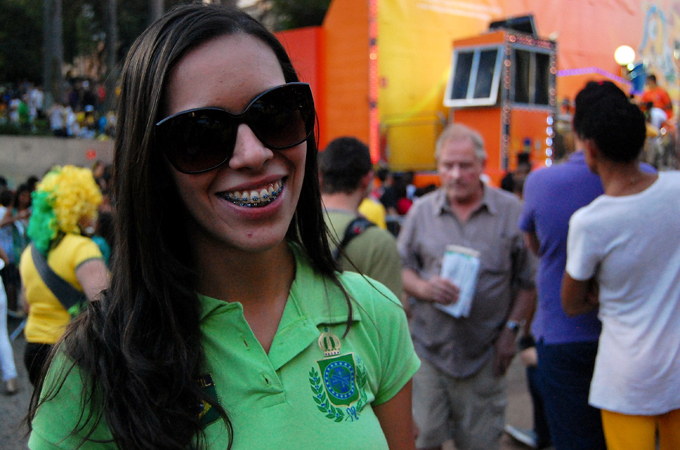 |
| [Jillian Kestler-D’Amours/Al Jazeera] |
I came to celebrate the World Cup opening. There are other priorities to worry about, but it’s cool. Education, healthcare … politics have to get better. I think [the World Cup has] helped; people are talking about these issues more. Not that it’s changed anything, but at least people are talking about it.
I don’t believe in Brazilian politics any more, so I don’t think [the World Cup] will change anything. Politicians in Brazil don’t do anything to improve the situation for Brazilians; they just want to steal money.
I still want Brazil to win. Everybody forgets about the problems during the World Cup, but everything will come back afterwards.